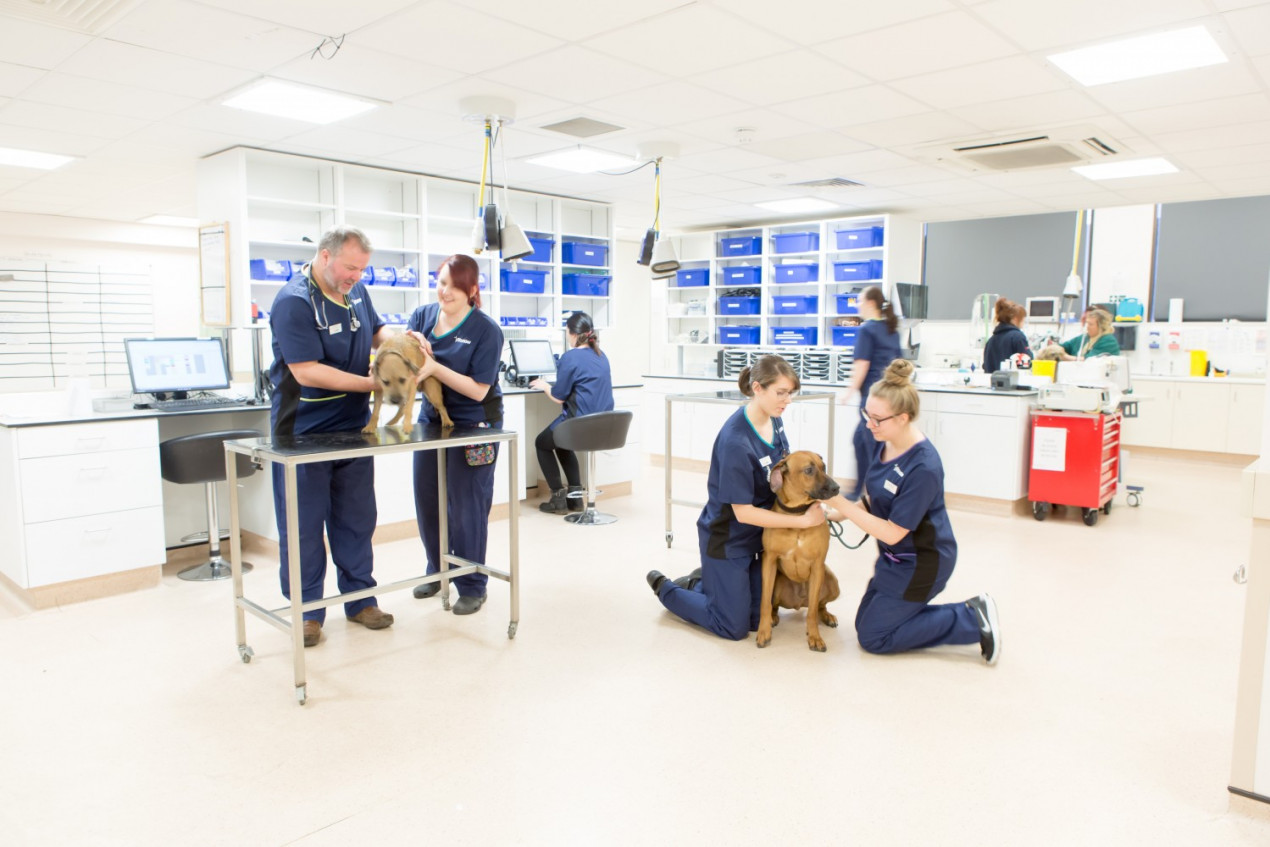
What are the most common illnesses and emergencies in puppies?
Puppies can suffer many of the same health conditions as adult dogs, but because of their age, some of these should be considered more serious. Here we list the most common illnesses and emergencies in puppies, ranging from puppy diarrhea to hypoglycaemia.
1. Sickness and diarrhea in puppies
Sickness and diarrhea is the most common reason puppies are seen as an emergency. It’s very common in newly rehomed puppies for a variety of reasons, including the stress of rehoming, parasites including worms and amoebae, bacterial infections, viral infections (including the deadly parvovirus), dietary indiscretion and rapid changes in diet, vitamin deficiencies, toxins and congenital problems.
Small bouts of watery diarrhea or a small amount of regurgitated food can often be treated at home by feeding a bland diet little and often, withholding all rich treats and titbits. Tepid water can be offered but should not be gulped. Puppies with vomiting and diarrhea should still appear bright and normal at home. As puppies are a lot quicker to show dehydration than adult dogs, it is always much safer to get them checked by a vet if there are any concerns.
Puppies with vomiting and diarrhea should be seen by a vet if any of the following apply:
- They are lethargic, not acting normally or not wanting to play
- The abdomen seems bloated or painful
- There is a large amount of fluid being lost through vomiting or diarrhea
- There is blood in the vomiting or diarrhea
- Puppy being sick is not responding to a bland diet
- They have not yet received a full course of vaccinations
- They are receiving medication for a different reason
- There is a suspicion of an infectious cause (more than one dog is affected, or a member of the family is also displaying symptoms)

2. Puppies eating things they shouldn't
Puppies explore the world with their mouths – licking, mouthing and chewing virtually everything they encounter, and this behaviour can lead to a lot of trouble! Chewing electric cables can be life-threatening if they chew through the plastic and get electric shock. Any animal receiving an electric shock should be brought to the vet as soon as it is safe for them to be moved.
Poisons, toxins and drugs can all be more dangerous if ingested by a puppy as their liver and kidneys have not fully matured. Particular ‘favourites’ include slug pellets, anti-freeze, chocolate, raisins, human medications (e.g. painkillers) and other pets’ medication. Please contact your veterinary surgeon for advice immediately upon ingestion as prompt action may be required to prevent long term health problems.
‘Foreign bodies’, or non-food materials getting stuck in the gastrointestinal tract, are more common in puppies. Symptoms often include vomiting, diarrhea, lethargy and abdominal pain. Hard objects such as pieces of bone or stones may be possible to be felt in the intestines by a vet, but objects in the stomach or soft objects such as socks may require an x-ray or an ultrasound to diagnose. While some objects may pass through, surgery is often required to remove the ‘snack’.
3. Other gastrointestinal problems such as worms
As their immune system isn’t fully developed, puppies require more frequent doses of wormer than adult dogs as they need to get rid of worms acquired while in the mother’s womb and through the milk. Large numbers of worms can cause intestinal problems including vomiting, diarrhea, abdominal pain and weight loss. Worms are extremely common in puppies and a vet will be able to recommend wormers suitable for puppies.
Intussusception is a term meaning that a portion of the intestines has slid into an adjacent section and got stuck, much like sections of a telescope slide into each other. It is often very painful and may present as severe abdominal pain and collapse, along with vomiting and diarrhea. Puppies suspected of having this condition should be seen immediately by a vet.
4. Head and trauma injuries in puppies
Due to their size, puppies are a lot more prone to being stepped on or squished beneath falling objects, and are more likely to be seriously injured. Puppies feel pain more easily than adult dogs. We would always recommend that a puppy showing any signs of pain, breathing difficulties or behavioural changes after a traumatic incident should be seen by a vet.
5. Hypoglycaemia of toy breeds
Very small breeds, such as Chihuahuas and Miniature Yorkshire Terriers, have extremely tiny stomachs and when young cannot cope long intervals between meals. Low blood sugar (hypoglycaemia) can be life-threatening and manifests as lethargy, weakness and wobbliness (ataxia) with a ‘spaced out’ demeanour or a glassy-eyed appearance. In severe cases, this can progress to collapse, coma, seizures and even death. Small puppies should be fed at least every 4 hours, and if displaying the above symptoms, should be given a small amount of honey or powdered sugar straight into the mouth before being taken to a vet for assessment.
This can also be seen in all puppies with severe sickness and diarrhea, very young puppies of all ages, or very cold puppies.
What changes should I look out for as my dog ages?
Ensuring your dog has regular health checks with your vet will often pick up problems in the early stages (which is always better) but it is important to know what changes you should be looking for in your dog. If you notice any of the following symptoms then it’s best to make a quick trip to the vet:
- Drinking excessively for more than a couple of days
- Regular vomiting or persistent diarrhea
- Unexplained weight loss
- A persistent cough
- Behavioural changes
What else should I do to maintain my puppy's health?
Regular worming and flea treatment are still required, along with yearly booster vaccinations. Your vet may also recommend a senior diet for your dog.
